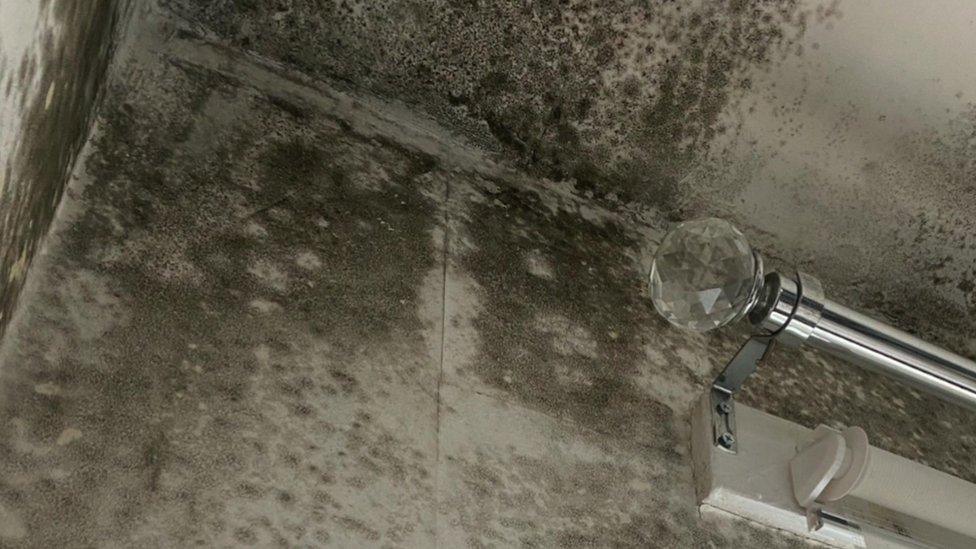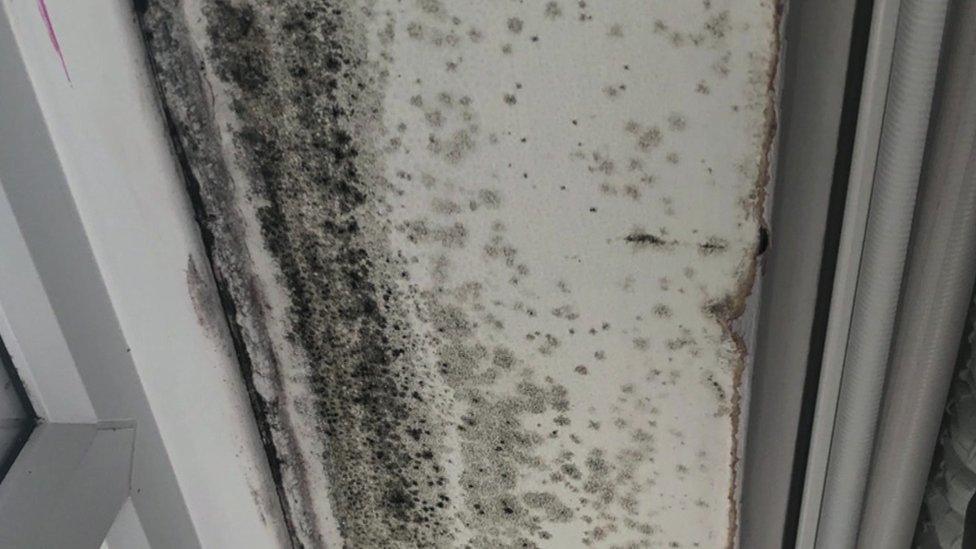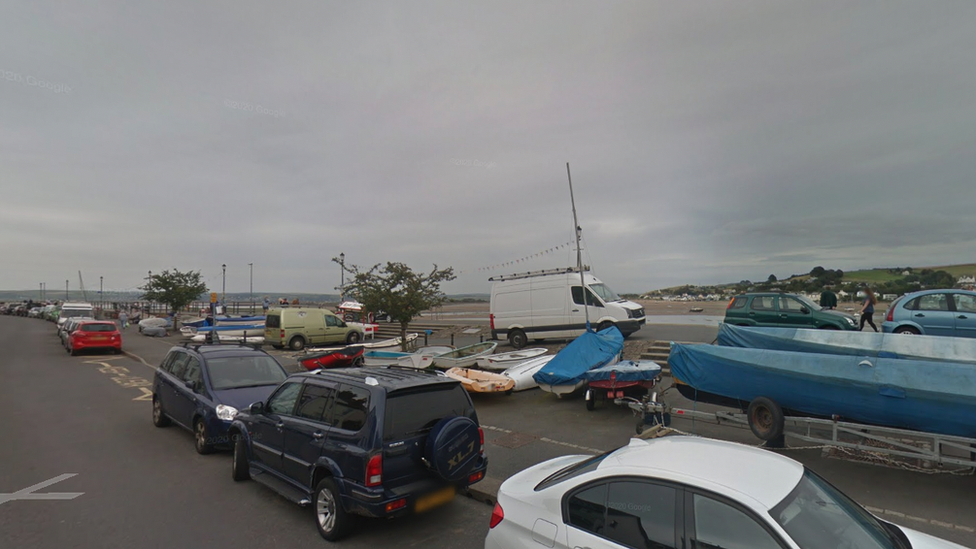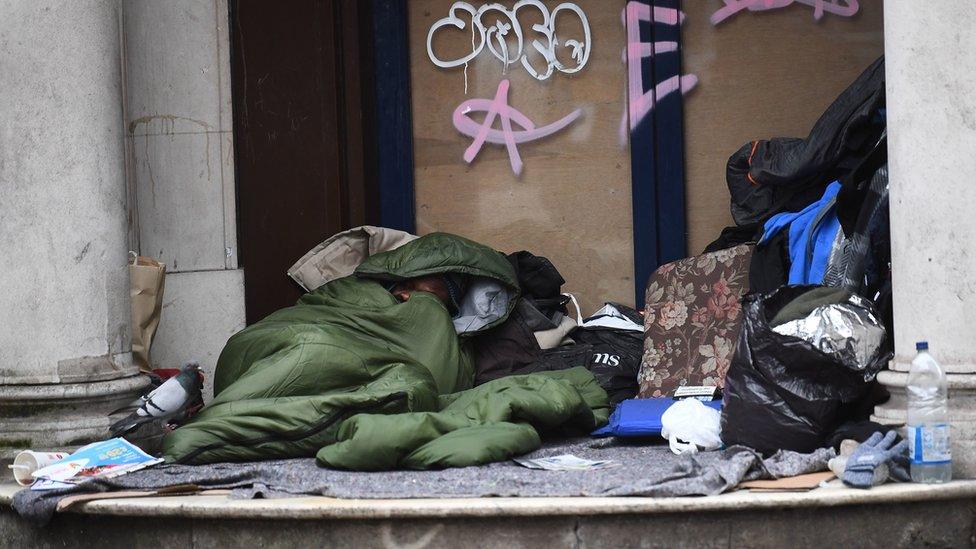Rise in tenant complaints against landlords in Devon and Cornwall
- Published

One tenant in Torquay complained of issues with mould
There has been a rise in the number of tenant complaints against landlords in Devon and Cornwall.
Tenants in private and social housing made 2,901 complaints to local councils in the year to April 2022, compared to 2,350 in 2018.
The figures were shared by nine out of the region's 11 authorities for a BBC investigation.
Councils cited tenants' "greater awareness" of health risks as being among reasons for the increase.
Issues raised in the complaints included damp, mould and bed bugs.
Concerns about unfair rent rises and eviction notices also featured.
The investigation followed the case of Awaab Ishak, a two-year-old boy from Greater Manchester whose death in December 2020, was linked to exposure to mould in a flat.
A coroner said his death should be a "defining moment" for the housing sector in terms of knowledge and awareness of the issues surrounding damp and mould.

One tenant shared this picture of a house in Torquay
Cornwall Council said: "We have been tackling this demand and our enforcement work has increased accordingly."
Exeter City Council said it was "pleased" that more tenants were coming forward.
It added: "We see this increase as an increased awareness as opposed to a decrease in standards across the private housing sector in Exeter."
Iain Maitland, president of the South West Landlords Association, said the energy crisis was contributing to problems with damp in some properties.
He added: "If you're paying for expensive energy you don't want to waste it by opening the windows and ventilating and that's a big cause of problems."
He said landlords were choosing to leave the industry over issues including rising mortgage interest rates and tougher regulations.
Rachel Clarke, lead for homelessness and housing at Torridge District Council, said "overall levels" of complaints were "not huge".
She said they could be a short-term consequence of reduced inspections and interaction with landlords during the pandemic.
Council officers would seek to "ban or prosecute" landlords where warranted, Ms Clarke said.
But she said in most cases working with landlords offered a "quicker and better" outcome for tenants.
Ms Clarke said high-profile national cases may have resulted in an increase in complaints to councils, where previously issues might have been dealt with directly between tenants and landlords.

Follow BBC News South West on Twitter, external, Facebook, external and Instagram, external. Send your story ideas to spotlight@bbc.co.uk.
Related topics
- Published23 January 2023

- Published11 January 2023
